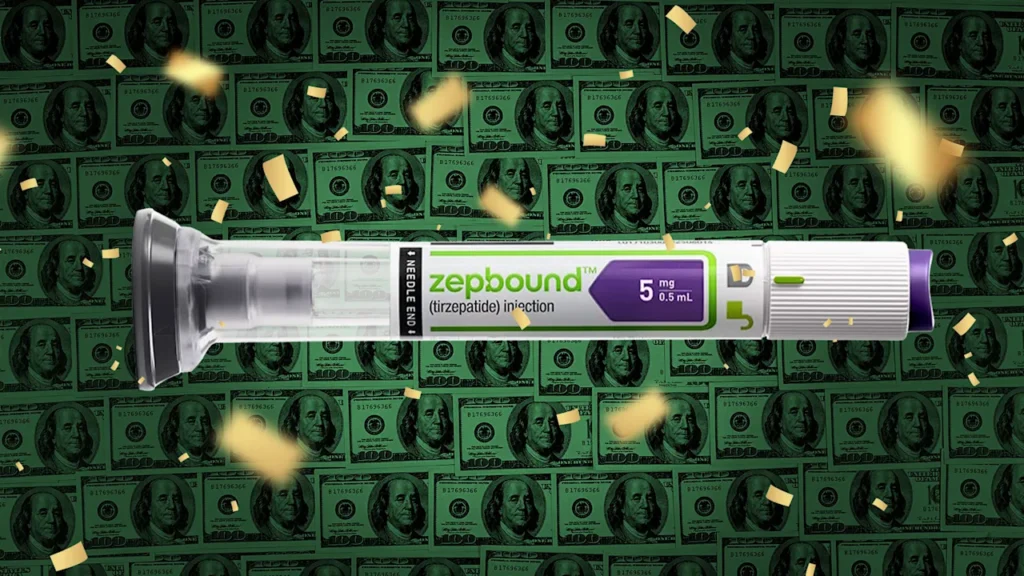
Silicon Valley’s giants crowd the list of the world’s most valuable companies, but drugmaker Eli Lilly is hot on their heels. The company topped a market capitalization of one trillion dollars on Friday, becoming the first business in the health industry to hit that milestone.
Lilly’s achievement comes during a tense week for stock watchers. AI chipmaker Nvidia, which itself became the first $5 trillion company less than a month ago, beat expectations with its latest quarterly earnings. But with AI overrepresented among the world’s top businesses and massive AI investments making headlines every day, investors remain skittish that excitement over the tech might be overblown.
While Lilly still sits just outside the global top ten most valuable companies, its rise demonstrates that non-tech businesses can still chart a path to the stock market’s upper echelons. In Lilly’s case, that rise was powered by spiking interest in weight loss drugs – a trend that has nothing to do with the white hot world of AI.
Rise of GLP-1s
The Indianapolis-based drugmaker enjoyed a massive 35% boost in its stock price this year, tapping into the rise of weight loss drugs with its own offering, tirzepatide. Lilly’s star drugs, Mounjaro and Zepbound, both package tirzepatide, with the former approved to treat Type 2 diabetes and the latter prescribed for weight loss or sleep apnea. Tirzepatide works by simulating two naturally-occurring gut hormones that influence digestion, appetite and help the body regulate blood sugar.
Lilly’s two hot weight loss drugs earned the company more than $10 billion in the third quarter of the year, accounting for more than half of its $17.6 billion in sales during the same period. By the end of October, Mounjaro and Zepbound had already made the company $25 billion – more than the drugmaker’s total revenue in 2020.
Keeping its growth going after such a landmark year poses a challenge, but Lilly is already deep into the development of a new weight loss drug in pill form that offers a convenient alternative to regular injections. That drug, orforglipron, is a candidate for early FDA approval, a process that could put it on the market very quickly.
Eli Lilly bests the competition
As Lilly races to release its weight loss pill, rival drugmaker Novo Nordisk is doing the same. Novo Nordisk is also currently awaiting FDA approval for its own oral weight loss drug under the agency’s new expedited process. Both drugmakers are also slashing the price of their injectable weight loss drugs after the Trump administration called on them to lower prices.
“I’m thrilled to announce that the two world’s largest pharmaceutical manufacturers, Eli Lilly and Novo Nordisk, have agreed to offer their most popular GLP-1 weight-loss drug—I call it the fat drug, remember—at drastic discounts,” Trump said.
While Eli Lilly is riding high on the weight loss craze this year, Novo Nordisk isn’t enjoying the same confidence from investors. Novo Nordisk’s value more than quintupled heading into last year, but the company’s shares fell sharply in 2025 as its first-mover advantage in the weight loss market dissolved and compounding pharmacies took a bite out of its business.
Eli Lilly wasn’t first to market, but it made up ground quickly, securing FDA approval for diabetes drug Mounjaro and its weight-management counterpart Zepbound. Eli Lilly shares have soared since those drugs started hitting the market, showing no sign of flagging.
“We’ve spent 150 years going after some of the hardest-to-treat disease states—like [developing] lifesaving insulin [for diabetes], eradicating polio, revolutionizing depression with Prozac—and we’re still laser-focused on innovation,” Eli Lilly’s Global Chief Customer Officer Jennifer Oleksiw told Fast Company recently. “But the game has changed. It’s not delivering medicine; it’s taking that medicine and adding the right solutions, services and content, and making it personalized, accessible and scalable.”